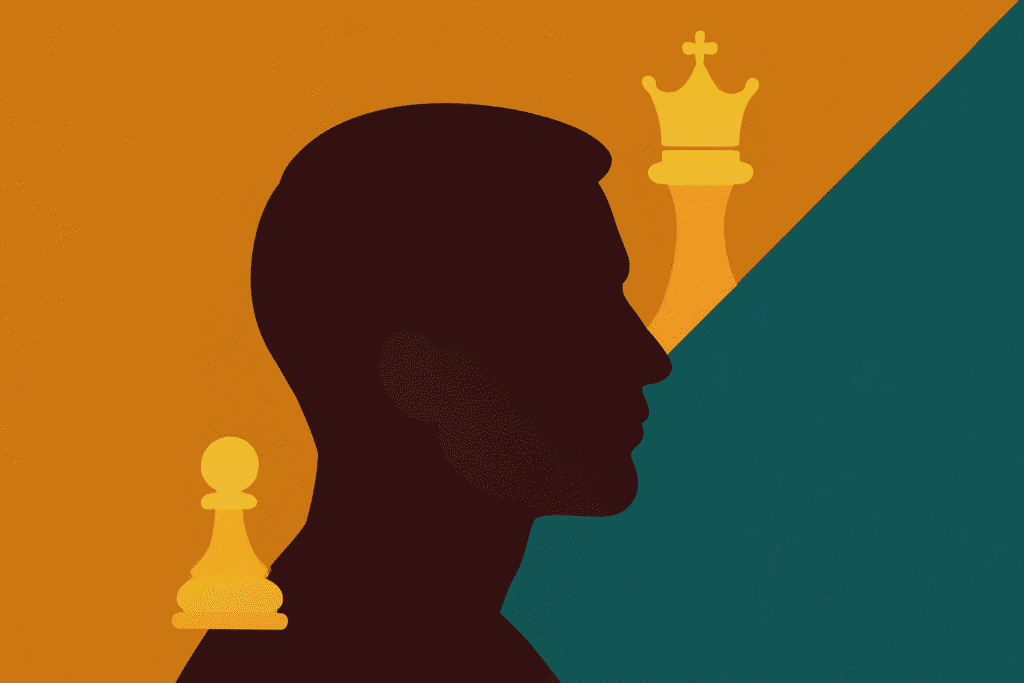You already know what to do. So why aren’t you doing it?”
We all dream big but act small. Here's why that cycle never ends, unless you fix one thing: your character.
We all want to be healthier, wealthier, smarter, better-looking. We dream about it, talk about it, even plan for it. But when the time comes to act, eat the salad, hit the gym, start the business, talk to crush, save or invest the money, we fall short. Why?
Most people would say it’s a lack of willpower or discipline. I disagree. The problem cuts deeper: it’s a character problem.
When I was younger, if I didn’t like something, even if it was good for me, I’d shrug it off and say, “Nah, that’s just not for me.” If I made a stupid decision, I’d excuse it by saying, “This is just who I am. I’m being real.” Sound familiar?
At some point, most of us realize these excuses are just that, excuses, and we (hopefully) grow past them. But if we keep accepting our own bad behavior as “who we are,” we lock ourselves into a life of mediocrity, misery, and missed potential.
The faster you realize that not every part of you deserves your loyalty, the faster you start moving toward your real potential. And as you grow, people notice: more conversations, more connections, more opportunities.
So, What Exactly Is a Character Problem?
We all have two sides inside us: a higher consciousness that knows what’s right, and a lower, beast-like instinct that just craves pleasure. Unfortunately, the beast side is heavier because it’s tied to instant gratification.
That’s why it’s easier to watch Netflix than read a book, daydream about your crush rather than talk to them, eat junk food instead of cooking a healthy meal, scroll endlessly rather than work out. Every time you give in, that behavior carves itself deeper into your identity. It becomes part of the “I” you recognize as yourself.
Over time, you stop even questioning it. You accept it. You identify with it. And because you’ve linked these bad habits to pleasure, they become self-reinforcing, and deadly to your growth.
Character isn’t formed in a single moment of weakness, it’s built quietly through the thousands of small compromises you make with yourself. And when enough of those compromises pile up, they don’t just affect what you do, they define who you are.
This is where character gets corrupted: not by dramatic failures, but by tiny, repeated acts of self-betrayal.
Why Willpower Alone Isn’t Enough
Imagine you decide to eat healthy. Day one, you do fine. But then you smell a burger. Your beast brain wakes up. You don’t even think, you just order it. After all, you’ve always been “the type of person who loves junk food.” That’s the story you’ve told yourself.
It’s not about willpower anymore. It’s about character. It’s about the identity you’ve accepted.
If you’ve allowed “junk food lover” to become part of your self-image, no amount of motivation or clever planning can save you. You’ll always default to your true character when your guard is down.
I remember when my health was failing, and a doctor told me to exercise, eat healthy, and take my medicine on time. I did exactly that, without hesitation. In that moment, a stronger consciousness kicked in, the part of me that truly wanted to live. Not just survive, but live well. I could see a healthier version of myself in my mind, and without overthinking, I did all the right things consistently, without skipping a single day for months. That urgency reshaped my character at a core level, not just my behavior.
The Root Cause: You Let Yourself Slide
You didn’t just wake up here. You drifted. Slowly. One excuse at a time. You told yourself it was okay “just this once,” and that lie stacked itself until it became your norm. The truth? You tolerated too much from yourself, skipped the workout, stayed silent when you should’ve spoken, chose comfort over courage. And now you’re paying the price.

But here’s the power in that truth: if it was you who built this version of you, then it’s you who can tear it down and rebuild better. You don’t need saving. You need standards. And once you set those standards, you hold the line, every time, especially when it’s inconvenient. That’s how self-respect is earned: not through talk, but through the small, quiet choices nobody sees.
Self-respect is built in private and cashed out in public. You’ll know who you are when no one’s watching.
The Real Discipline: Become the Person Who Doesn’t Need It
Discipline isn’t about forcing yourself to do hard things. That’s survival-mode. It doesn’t last. Real, lasting discipline happens when you become someone who naturally makes better choices, not because it’s a rule, but because it feels right.
You don’t need to trick your brain. You need to transform it. And that starts by upgrading your identity. The moment you stop identifying as the person who struggles with food, laziness, excuses, failure, and start acting as the person who’s already moved past that, your choices change.
You’re not “trying to be better.” You are better. So act like it. Not perfectly. But consistently.
Discipline flows naturally from identity. When you become the kind of person who does the right things, motivation becomes irrelevant. You just do it, because that’s who you are now.
Steps to Build a Strong and Better Character
You don’t build character by reading about it. You build it by confronting yourself and doing the uncomfortable work consistently. Here’s a clear path to begin that process:
- Get brutally honest with yourself: No sugarcoating. No filters. Take inventory of what you’re doing that’s holding you back. Not what sounds good, what’s actually true. If you’re lazy, admit it. If you’re chasing distractions instead of doing the work, own it. Honesty is the foundation. Without it, nothing changes.
- Identify the behaviors you’ve been excusing: Look closely at the things you’ve labeled as “justified”, the skipped workouts, the short temper, the procrastination. You’ve probably built stories around them. It’s time to break those stories. Excuses are just lies you’ve rehearsed.
- Reject the false identity that’s keeping you stuck: You’re not “just the kind of person who struggles.” That’s a lie you’ve lived in for too long. Burn it down. Decide that the old version of you, the one who avoids, delays, and settles, is no longer in charge. This isn’t about shame. It’s about clarity.
- Visualize the version of you you’re becoming — daily: Not once, not when you’re inspired, every day. Close your eyes and see that version of you: how they think, how they speak, how they move. Get familiar with that version until it feels more real than who you used to be. That clarity will pull you forward when motivation fades.
- Align your small daily actions with that new identity: Don’t wait for big wins. Start with the micro-decisions, wake up when you said you would, speak up when you’d normally stay quiet, choose growth over comfort. Stack those choices. Over time, they harden into character. That’s how you become someone you’re proud of, not overnight, but one aligned action at a time.
What happens if you don’t fix your character?
I get it, changing your character isn’t some one-day miracle. It’s hard. It takes brutal honesty, deep thinking, and consistent action.
But if you don’t fix it, the truth is simple:
- You won’t become who you always dreamed of being.
- Your crush will marry someone else, maybe someone less talented, less attractive, simply because they showed up when you didn’t.
- You’ll never start your business. You’ll stay stuck, working for someone else, regretting every wasted year.
- You’ll watch your health slip away, quietly at first, until it suddenly isn’t quiet anymore.
- You’ll shove your true potential so deep down that even if you wanted to find it, you wouldn’t know where to look.
- You’ll live sad. Small. Miserable.
Final Words
“A weak character makes you bury dreams before they’re born.
A strong character makes you king or queen from a pawn.”









